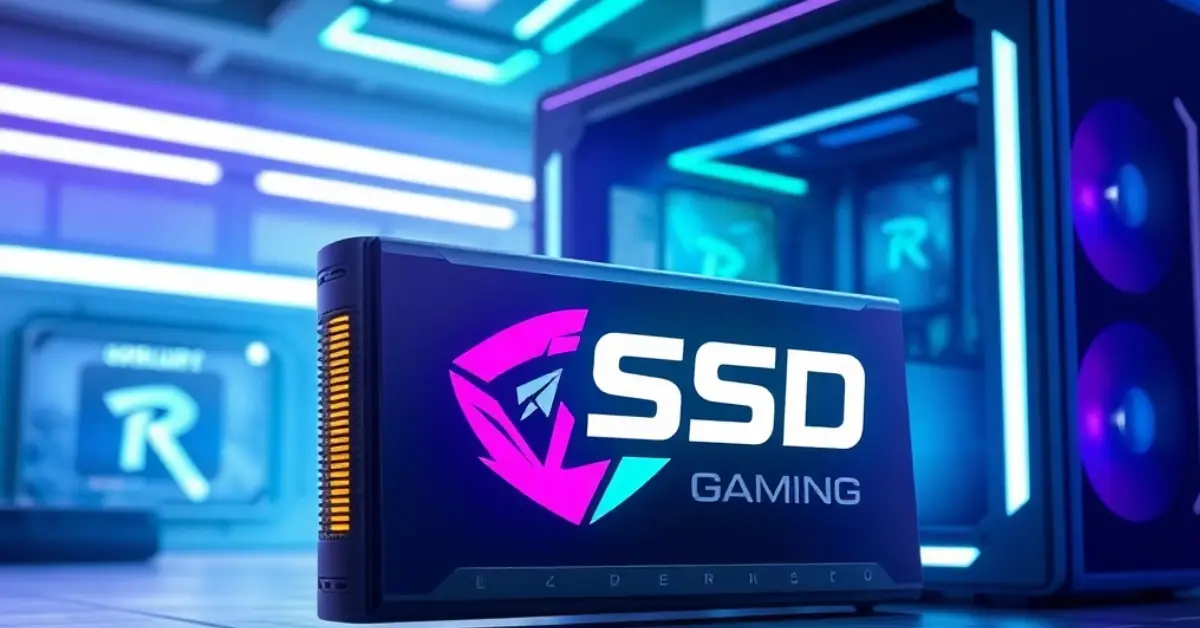Modern AAA or eSports games consume anywhere between 50GB to 250GB of storage space. As of today, you need a minimum of 500GB of storage capacity in a gaming PC. Go for a 1TB or 2TB capacity disk drives if you are too heavy on installing games.
For a casual gaming PC, 500GB of storage is generally recommended. Hardcore gamers who play multiple AAA titles may need 2TB or more. According to a study by TechSpot, the average game size in 2012 was approximately 11 GB, which has escalated to around 80 GB by 2023, indicating an average annual increase of 6.3 GB.
How Much Storage Do You Need for A Gaming PC?
The table below explains the storage you need in a gaming PC based on game types and habits.
| Gaming Habit | Recommended Storage | Storage Type | Game Type |
|---|---|---|---|
| Casual Gaming | 500GB – 1TB SSD | SSD (SATA or NVMe) | Playing indie, older, or a few AAA games |
| Mainstream Gamer | 1TB – 2TB SSD | NVMe SSD | Regular gaming with multiple modern titles |
| AAA Gamer and Streamer | 2TB+ SSD + HDD | NVMe SSD + HDD Combo | Large AAA game library, frequent installations |
| Competitive eSports | 1TB NVMe SSD | High-speed NVMe SSD | Fast load times for online multiplayer games |
| Content Creator + Gamer | 2TB+ NVMe SSD + HDD | NVMe SSD for OS + HDD for files | Gaming + video editing, modding, or 4K gameplay storage |
| Future-Proofed Setup | 4TB+ (SSD and HDD) | Large NVMe SSD + HDD | Extensive gaming collection, VR gaming, future expansion |
How Do Different Game Types Affect Storage Requirements?
500GB is The Bare Minimum
Modern games consume anywhere between 50GB to 250GB of storage space. Therefore, 500GB is the least amount of storage to have in a casual gaming PC.
500GB storage space is enough to install a few AAA or eSports games. Choosing a 500GB HDD or SSD drive also helps you to cut down on extra costs to build a gaming PC.
1TB is The Sweet Spot
Choose a 1TB NVMe SSD for your gaming PC if you want to install a dozen AAA, eSports, or even hundreds of indie games. A 1TB storage drive costs roughly $30 to than 500GB drive.
Most gaming PC brands these days equip their machines with at least 1TB of storage capacity. Going for a 1TB SSD or HDD drive also gives you plenty of space to save other important files like videos, music, images, etc.
2TB is For Hardcore Gamers
2TB drive offers you plenty of space to install multiple AAA, eSports, or Indie games. A 2TB storage device is meant for hardcore gamers who frequently update games, install mods, etc.
I’ve also equipped my gaming PC with a 2TB Samsung Evo NVMe drive. To be honest, it’s hard for me to fill this drive though I have a fast 1Gbps broadband internet connection.
A 2TB offers the best price-to-performance ratio if you are a pro gamer. SAMSUNG 990 EVO Plus SSD 2TB is available on Amazon for just $130. If you don’t have any budget restrictions while buying a gaming PC, a 2TB drive offers you plenty of terabytes impossible to fill in 2025.
3TB/4TB or Higher For Pro Gamers + Content Creators
Choosing a 4TB won’t do any justice to your gaming PC if you are a pro gamer and content creator. 4TB is a massive storage space when it comes to installing heavy games, saving backups, large 4K video files, and other content creation stuff.
I’ve never thought of getting a 4TB drive for my gaming PC. Why? Because I’m super comfortable with my 2TB Samsung EVO that still has over 1TB of space left in it. Unless the upcoming games start to consume more than 250GB of space, a 2TB stays on my gaming PC for years.
A 4TB HDD, SSD, or NVMe is a good option for someone who is a professional gamer and content creator. Downloading heavy games, rendering, and saving large 4K files swap a lot of space on your storage device. 4TB is the right choice if you want to showcase your massive gaming library.
Which Type of Storage Is Better for a Gaming PC?
SSDs are faster than traditional HDDs as they cut down on the load times. SSD improves FPS (frames per second) in open-world games with faster asset streaming compared to hard disk drives. The only advantage that HDDs have over the SSDs is the cost, HDDs are cheaper than the SSDs.
An ideal setup is to install both SSD and HDD (also known as Hybrid Storage). Archive the large game files on the HDD and install Windows on SSD to run games smoothly.
You can move games (you are not playing) from SSD to HDD without deleting them. This allows you to make space available for the games you intend to play from your SSD drive.
Installing a game like Red Dead Redemption 2 on a hard drive takes ages to load. Meanwhile, an NVMe SSD with faster read/write times loads such a resource-intensive game instantly.
Verdict
Choosing 500GB, 1TB, 2TB, 4TB, or even more storage space in a gaming PC depends upon your gaming habits. The more storage space you have, the more games and files you can install on your PC.
1TB is the sweet spot these days, allowing you to install a handful of AAA/eSports games at a time. Select a 2TB drive to install plenty of games without deleting the older ones.
The size of video games is increasing every year due to advancements in gaming engines, graphics, textures, etc. Therefore, choosing a storage capacity for your gaming computer that is future-proof is the key here.
When choosing a storage capacity for your gaming PC, you must ask yourself whether to go with an HDD or SSD. An SSD offers faster read/write speed, quicker loading time, and higher durability compared to an HDD.
On the other hand, HDDs are a cheaper option for storing large files like videos, game installation files, etc. However, as HDDs are made up of mechanical parts, they have a short life span and can fail anytime resulting in data loss.
FAQs
Is 256GB storage capacity enough for a gaming PC?
It depends upon the types of games you intend to install on a 256GB drive. You’ll probably run out of space on a 256GB drive if you want to install multiple AAA or eSports games. However, for indie or casual games, a 256GB storage device is sufficient.
Is 512GB SSD enough for gaming?
512GB is the bare minimum for gaming as it allows you to install a few modern AAA or eSports games. You may run out of 512GB SSD if you are too heavy on installing AAA or eSports games. Modern AAA games consume anywhere between 50GB to 250GB of space.

Mosaab Jamal Ahmed brings 12+ years of PC Hardware experience to the table. His journey began in 1998 with a Pentium 1 PC, igniting his lifelong fascination with computer hardware and video games. Over the years, Mosaab has honed his skills in upgrading and building gaming PCs. He has built dream gaming machines for multiple brands and local businesses throughout his career. Mosaab’s areas of expertise are building custom gaming PCs, in-depth PC hardware analysis, and PC hardware reviews.

